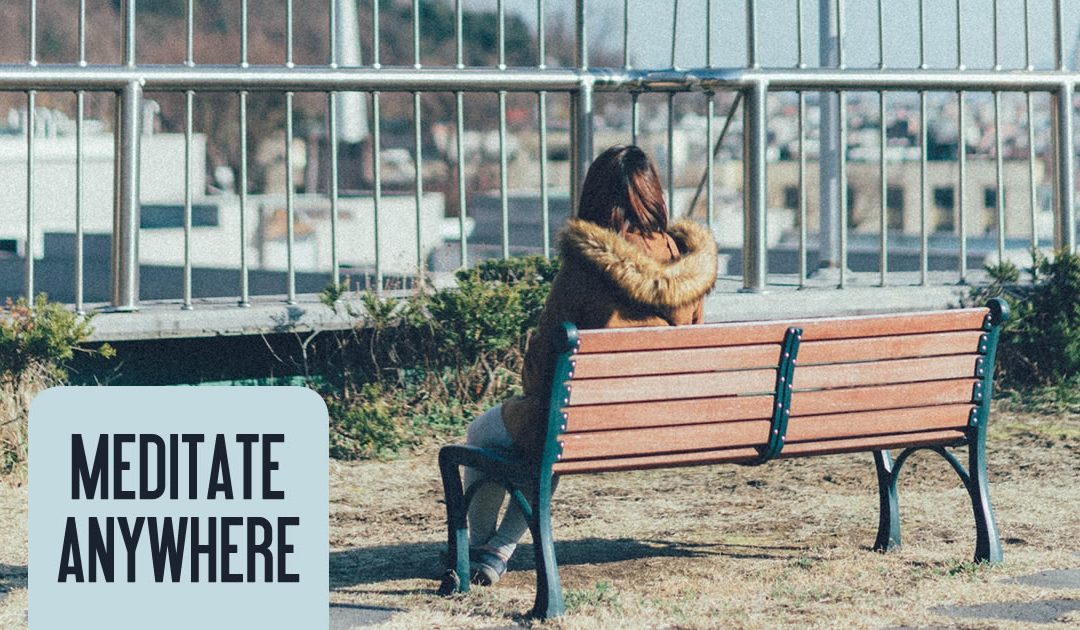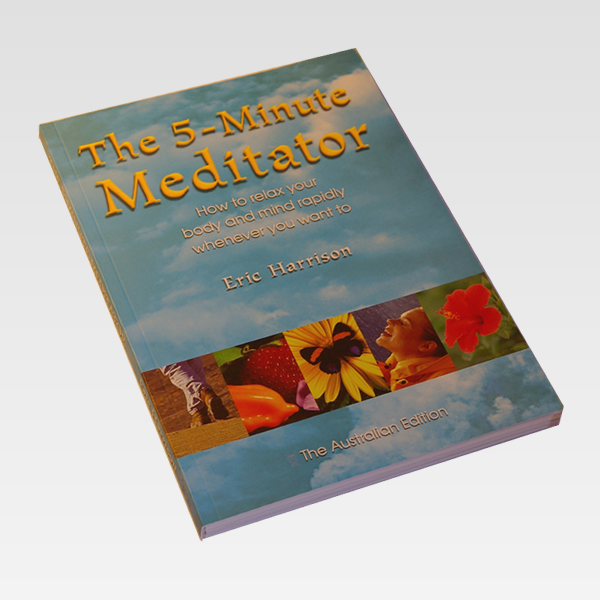Here’s what you need to meditate:
- 20 minutes ‘spare’ time
- A quiet place (where you can sit with your eyes closed)
At least, that’s what I’d always assumed.
Turns out I was wrong.
A formal meditation of this kind is certainly useful, but it’s possible to meditate anywhere, and without a moment to spare. This allows you to relax, calm your mind, or manage your mood in the midst of the activity, busyness and stresses of daily life. You can even use these techniques to meditate in busy, crowded and noisy places.
You could meditate:
- when waiting
- whilst commuting
- at your desk
- at the gym
- when you’re put on hold
- in the shower or toilet
- during ads on TV
- during meetings
And you could be mindful:
- whilst walking
- whilst talking
- when eating
- when you’re irritated or upset
- preparing a meal
- listening to music
- playing sport
- during sex
To do this, simply look for opportunities to focus on sensory things, such as:
- the food you’re eating
- the air you’re breathing
- a passing sensation, feeling or emotion
- a song on the radio.
These regular shifts into ‘sensory mode’ anchor you in the present. They also give your brain a chance to rest. You’ll find you feel more relaxed and more appreciative. And you’ll probably find yourself able to process your thoughts and emotions more efficiently.
‘Spot’ Meditation Instructions
The following spot meditations, inspired by Eric Harrison at Perth Meditation Centre, are short meditations that you can do throughout the day, wherever you are. For best results:
- Aim to do a spot-meditation — even if it’s only for 10 or 15 seconds — every hour.
- Work to make these mini-meditations habits that you can rely on.
- Use reminders or ‘triggers’.
e.g. When you see a car like the one you drive, use that as a reminder to relax your shoulders, breathe more deeply or to check in with what you’re thinking and feeling. - Remember that some practices are more useful than others. Choose the ones that work for you.
Select from:
Remember:
These mini-meditations — because they are so short — probably won’t leave you feeling profoundly relaxed. They can work very well, however, to bring you back to balance, whenever you feel anxious or stressed, or whenever your thoughts spiral out of control.



Can this form of meditation lead to a bad posture if ill-practised
Poor posture is not dependent so much on how you sit when meditating, but on how you use your body during all your daily activities, whether that is sitting at a computer, watching TV etc. So, it’s not this — or any form of meditation — that leads to poor posture, but how you sit, stand, walk and move in general.
Thank you for sharing this information is very helpful, you know, I learn Meditation thanks to futurelearn.com in a Mindfulness course and after I ended the course I felt that it wasn’t to helpful for me, however over a few months after I moved to Cabo San Lucas and I had to be at 7:30 every morning at work so I had to get up early every day and that helped me to see the Sunrise every morning, then I started to implement what I had learned and made my Meditation practice an habit. Though I don’t practice Meditation every day, the way you share it in this Essay is very helpful, thank you.
I’m glad you found this article helpful Daniel. It often takes a little while to find an approach to meditation that will work for you.